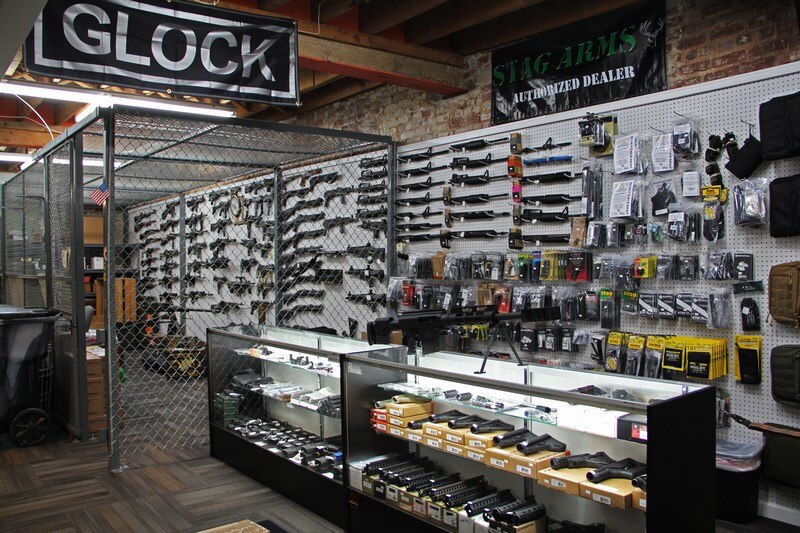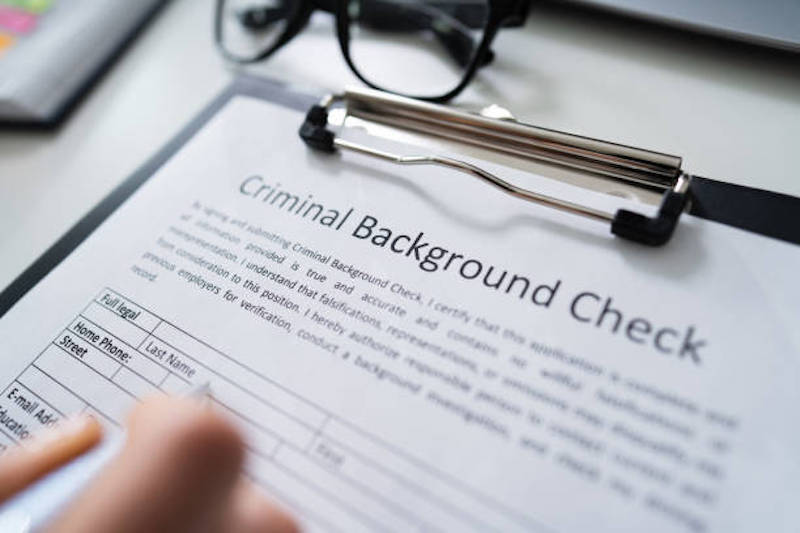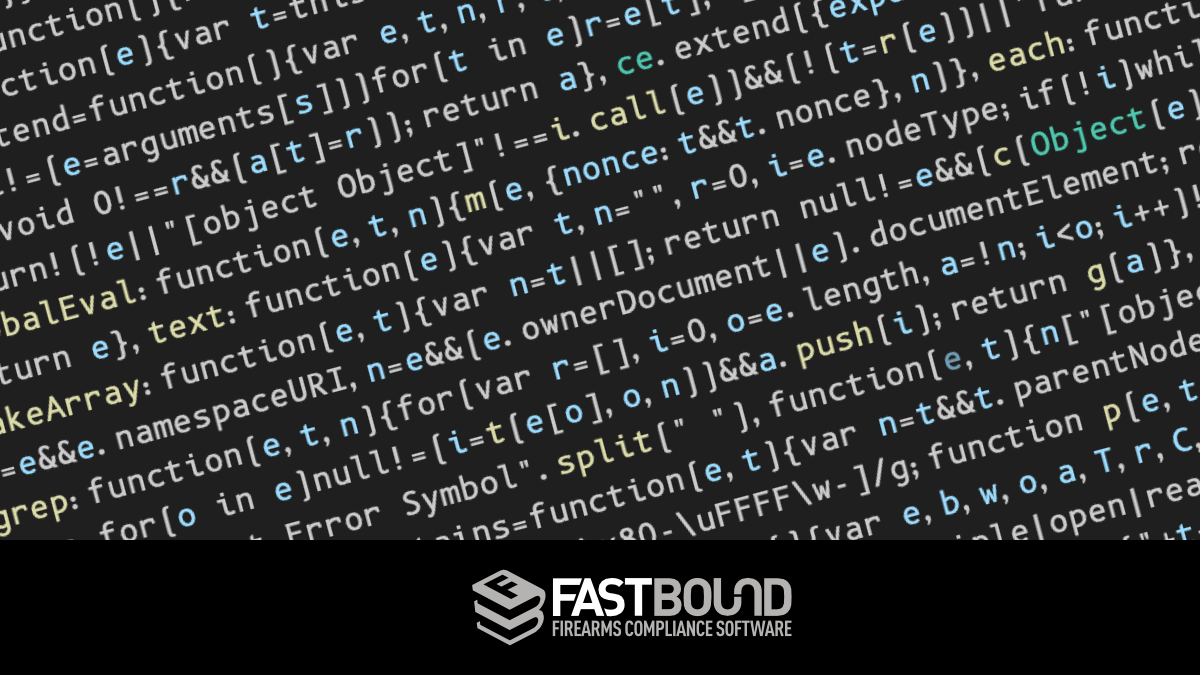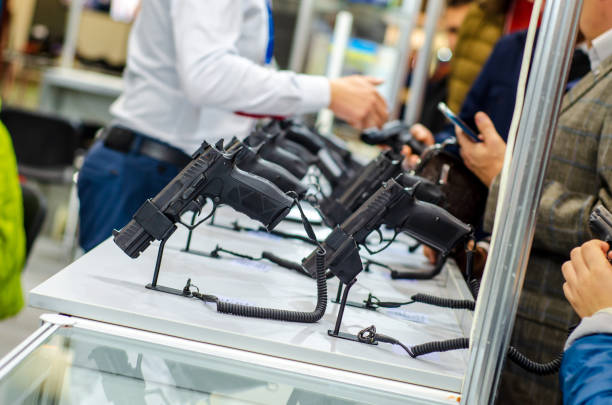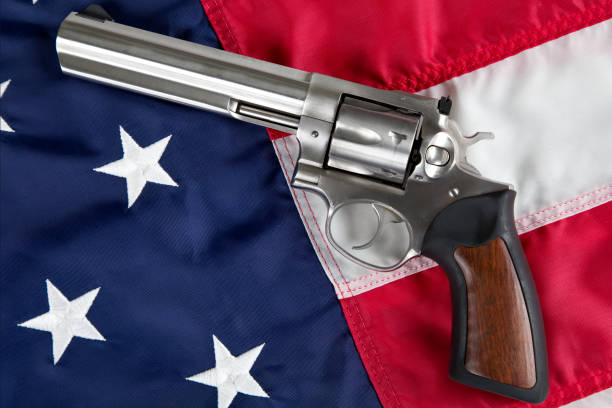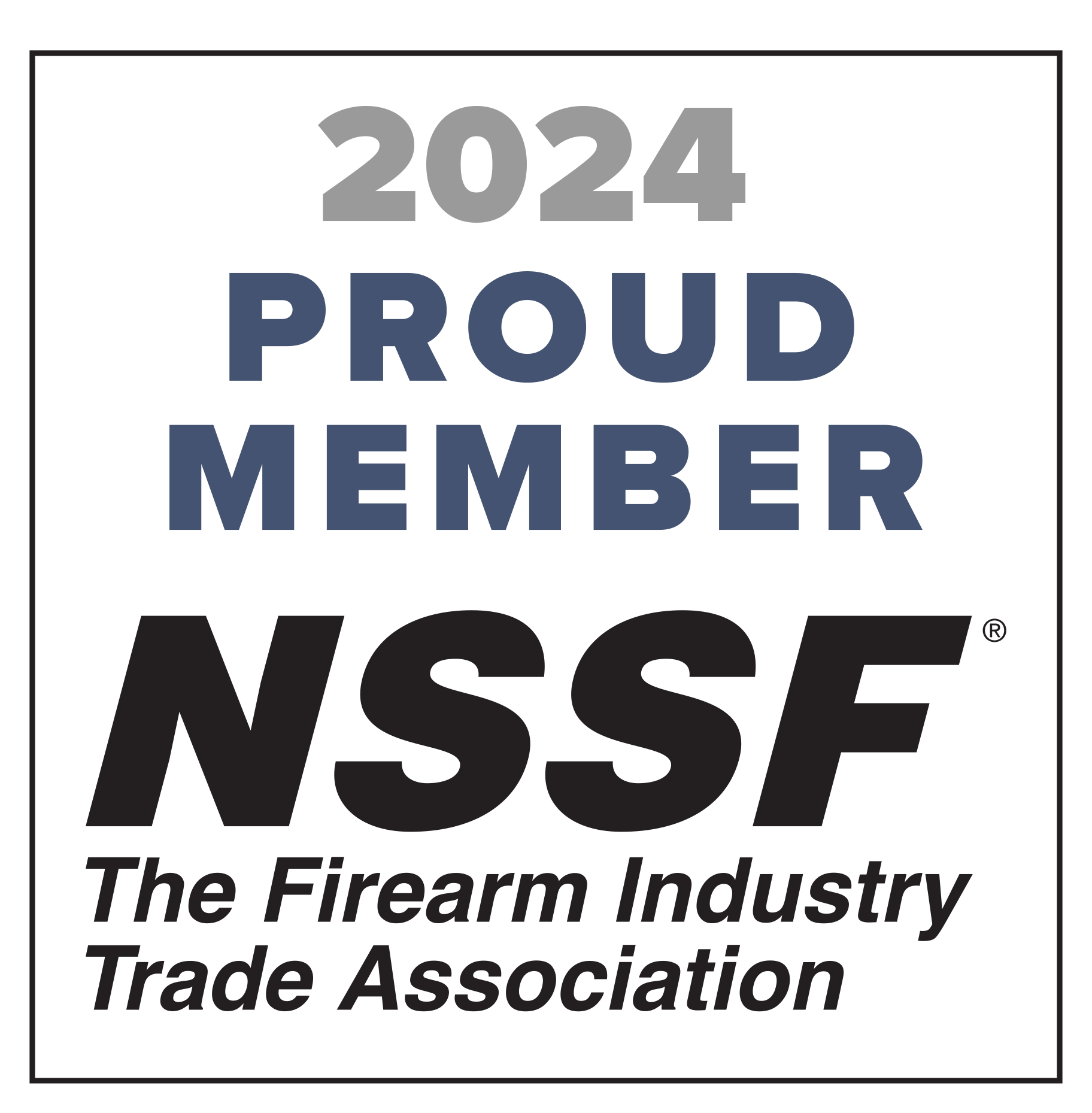If you’re looking to buy and sell firearms, manufacture weapons, or handle explosive devices, obtaining a Federal Firearms License (FFL) can be incredibly beneficial. There are 4 main types of firearm businesses:
- 01: Dealer (Buying and Selling)
- 02: Pawn
- 07: Manufacturing
- 08: Importing or Selling Domestically
These are the cornerstones of what an FFL or Federal Firearms License covers. The FFL process may seem intimidating at first, but it’s straightforward if you understand what the federal and state governmental agencies require. In this blog, we’ll cover the benefits of having an FFL in Texas, the steps to getting one, and everything else you should consider.
Benefits of Having a Texas FFL

As of the writing of this article, Texas has the most FFLs of any state because it is one of the largest markets for firearms, ammunition, and NFA items in the country. Further, the state is pretty kind to gun owners and dealers when compared to other states and even the federal government.
An FFL makes your gun buying and selling business legal, and you gain all of the tax incentives offered to those who own businesses. Additionally, your legal business has access to many of the gun and ammo manufacturers that a non-FFL would not have.
The biggest advantage of having an FFL in Texas is that you can store and ship guns or ammo directly to or from your place of business. This means that if you’re running a home-based business with an FFL, you can ship guns or ammo to your home.
The Steps to Get Your FFL in Texas
The state of Texas does not have any additional licensing requirements beyond those issued by the federal government and the ATF.
The short answer here is that the steps you need to get an FFL in Texas are those required by the ATF.
Before you get started on that process, it is a good idea to ask yourself if you can legally own a gun.
Step 1 – Getting your Texas FFL is a pretty simple process if you can pass a background check. For that, you’ll need the following:
- to complete a fingerprint card and submit it to the ATF.
- Physical address
- Full name
- Social Security Number
- Date of Birth
- Place of birth
- Former addresses
- Personal information – height, eye color, gender, etc.
You’ll also need to answer a series of questions about your past experiences with former FFLs, revoked FFLs, firearms businesses, etc.
Provided that you do not have any felony convictions related to drug and alcohol or violent crimes, you don’t have any restraining orders in place, and you have no history of domestic violence, passing the background check should be a breeze. If you’re operating a corporation, every member of the management team will be required to submit a background check on the ATF form and provide their fingerprints. However, if you’re running a sole proprietorship or a business with only one owner or manager, you only have to submit one form.
Step 2 – Choose the type of business you are – sole proprietor, LLC, corporation, partnership, etc. If you are not a sole proprietor you will need to prove you have the authority to be an LLC, corporation, partnership, etc.
Step 3 – Add your business details – EIN numbers, address, responsible persons, etc.
Step 4 – Indicate the type of FFL, or FFLs, you are applying for.
Step 5 – Include your payment information.
Page 2 of the FFL Application

Part 2 of the application deals with business details. Since an FFL dealer is a recognized business, you will need to gather some legal information for this section.
Step 6 – You’ll need to provide the ATF with information such as your operating hours, whether the business is new or if you’ve taken over an existing one, any previous FFL numbers that may be associated with you or your business, details regarding local zoning, and information about the premises. This includes whether it is a single-family dwelling or a military organization. Additionally, the ATF will inquire about your business operations, like if you plan to run a brick-and-mortar store or have a mobile component for selling at gun shows and the like.
Page 3 of the Application – Chief Law Enforcement Officer
The Chief Law Enforcement Officer in your area is an important figure to know. This CLEO could be your chief of police, county sheriff, or even your local district attorney. Knowing who this person is and establishing a positive relationship with them can be beneficial in many ways for an FFL.
Step 7 – Identify your local Chief Law Enforcement Office. Although this person won’t have any significant control over your FFL application, the ATF will reach out to them to gather any relevant information that may block the approval of your application.
Step 8 – Finger Prints – You will need to attach a fingerprint card, a 2″x2″ photograph of the applicant – all if more than one is applying and also an additional Part B for each applicant.
The remainder of the form is a full list of instructions and a second copy of the application which would go to the Chief Law Enforcement Officer. If you are filling this out by hand, then you will need to fill out each set of applications.
Step 9 – Ensure that all applications are carefully proofread, that all required information is provided, and that all signature fields have been signed. Each individual named on the application must complete Form B in full. Verify the payment method and make sure you understand the associated fees for the application, as these will vary depending on the type of FFL. The completed application should be mailed to the address indicated on the form.
Alternatively, you can streamline the process by utilizing FastBound, which allows for automatic form filling and electronic submission.
Federal FFL Requirements
The federal requirements for an FFL holder are that:
- You are free of felony charges and convictions, especially those involving drugs, alcohol, and violent crimes.
- You are over the age of 21.
- You do not have any restraining orders, or domestic abuse charges pending, and you are an upstanding citizen of the United States.
Texas FFL Requirements
Texas does not require any licenses beyond the federal FFL application. However, this could change at the local level, so you should check with your local ATF bureau to see if any additional measures need to be taken.
Texas FFL Cost
The cost of an FFL on the federal application ranges from $30-$3,000 depending on the type of FFL you are applying for. You can apply for multiple FFLs as required for your business.
| FFL Type | Application Fee | Renewal Fee | Years |
| Type 01 | $200 | $90 | 3 |
| Type 02 | $200 | $90 | 3 |
| Type 03 | $30 | $30 | 3 |
| Type 06 | $30 | $30 | 3 |
| Type 07 | $150 | $150 | 3 |
| Type 08 | $150 | $150 | 3 |
| Type 09 | $3,000 | $3,000 | 3 |
| Type 10 | $3,000 | $3,000 | 3 |
| Type 11 | $3,000 | $3,000 | 3 |
FFL in Texas?
Although the FFL application process with the ATF is generally straightforward, it can present some difficulties, particularly due to its length and the fact that it must be submitted in duplicate. For most FFL businesses, completing the application itself is the least complicated part. The real challenge comes from the need to consistently stay in compliance with the ever-evolving ATF regulations.
FastBound Can Help
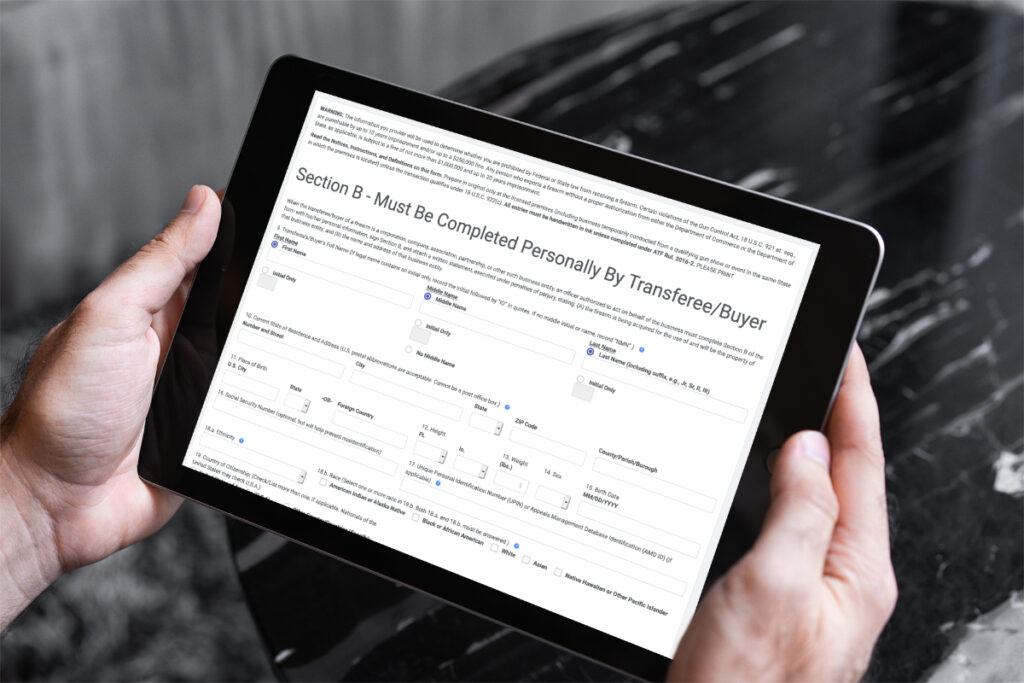
FastBound simplifies compliance for any FFL dealer or business. One of the biggest advantages of FastBound is its guaranteed legal defense against any ATF administrative actions related to our software. This is backed by FFLGuard, the country’s top attorney-backed firearms compliance program.
Other features include:
- FastBound offers unlimited and accurate A&D form submissions electronically, making compliance across most types of FFLs a breeze. One of the most common reasons for ATF sanctions is paperwork issues, but FastBound simplifies the process, ensuring faster, more readable, and accurate submissions. Whether you deal with semi-automatics, long guns, or pistols, FastBound’s A&D features keep you compliant.
- FFL holders can conveniently and securely fill out and store Form 4473 electronically on any smart device, thanks to FastBound. You can easily turn any smart device into a user-friendly workstation for both clients and staff, with no additional software or equipment required. FastBound simplifies and streamlines firearm transfers, ensuring ease and accuracy throughout the entire process.
- Multi-sales reporting allows you to handle multiple sales reports electronically and easily check the form’s accuracy before submitting it. Mistakes on multi-change reports can lead to compliance issues, which is why FastBound helps you correct any errors before they reach the ATF. With FastBound, you can automate incoming transfer forms, making the entire process accurate and easy. Plus, electronic storage eliminates the need to keep stacks of paper forms around, keeping your workspace neat and tidy.
- Our platform allows you to change thousands of items easily and efficiently with our Bulk Change feature. This saves you time, money, compliance issues, and headaches.
- The automation tool makes filling out ATF and State forms a breeze, as it helps you automate and populate forms electronically. Whether you’re working on firearms transfer forms or A&D forms, the automated features offered by FastBound simplify and streamline the process while ensuring accuracy. With FastBound, you can save time and focus on other aspects of your business while enjoying a more efficient workflow.
While the state of Texas does have additional requirements beyond those of the ATF, it’s important to stay informed and prepared in case that changes. FastBound helps you stay ahead of the game by updating you on any relevant changes and keeping you in compliance with FFL practices at all times. The platform updates to account for all changes, so you can rest assured that your business is always up-to-date and in compliance.
FastBound simplifies firearm transactions for FFLs while ensuring compliance with local, Texas, and Federal laws. Unlike other platforms, FastBound is not in competition with your business but rather works with you. We ensure your transfers remain compliant, even when there are sudden rule changes from the ATF or Texas.


